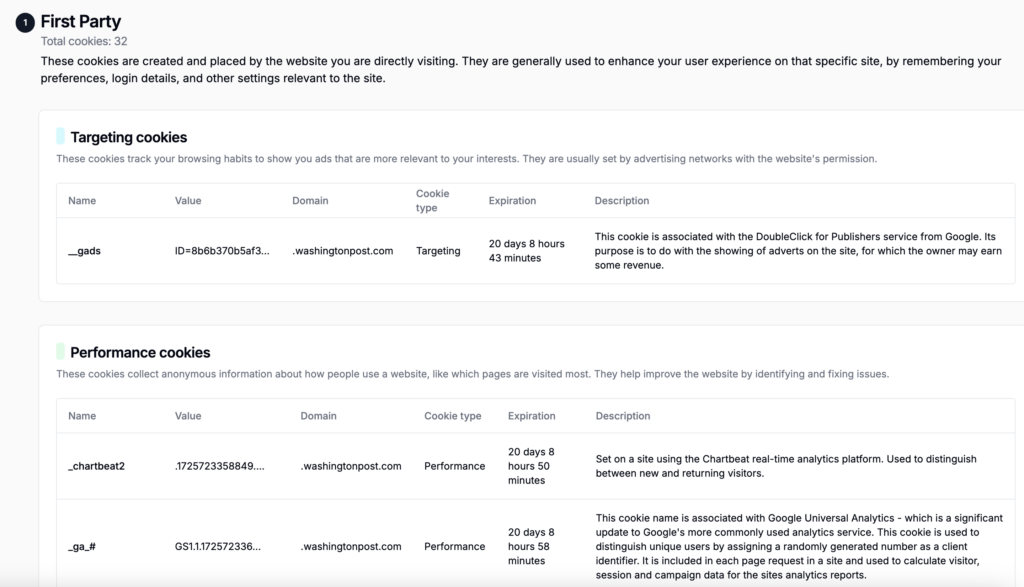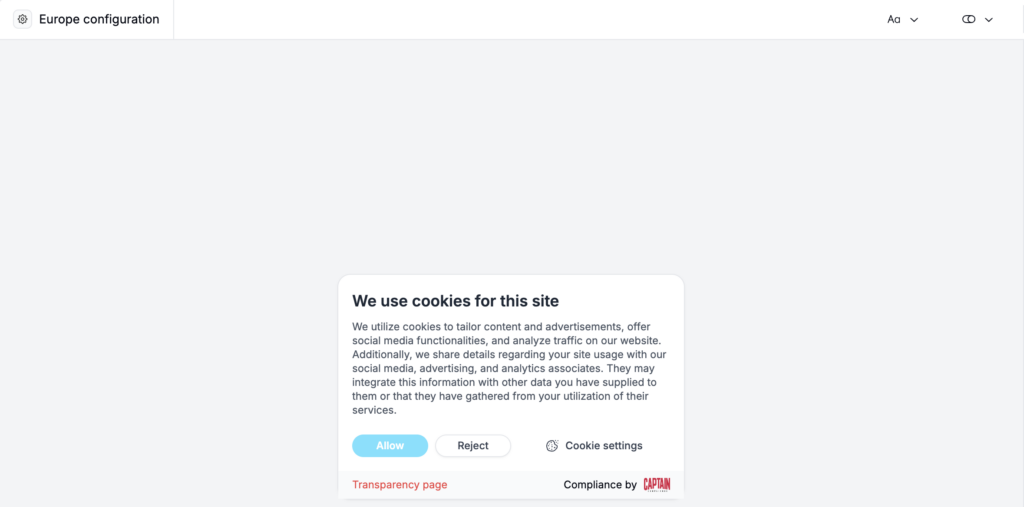In today’s privacy-centric world, businesses must navigate complex regulations concerning user data collection, particularly when it comes to cookies and tracking technologies. A crucial tool that helps companies manage this process is the Consent Management Platform (CMP). A CMP allows organizations to collect, manage, and store user consents in compliance with various global data privacy laws like the GDPR, CCPA, and more.
CMP Definition – Learn What CMP Stands For in Relation to Marketing & Internet Speak
A Consent Management Platform (CMP) is a software solution that helps websites and mobile apps comply with data privacy regulations by obtaining and managing user consent for cookies and other forms of data tracking. CMPs provide a transparent interface for users to understand what personal data is being collected, how it is used, and offer the option to either consent or reject such data collection practices.
Below is an example scan for the Washingtonpost.com domain showcasing a sample of their 32 First Party cookies and classifications such as Targeting & Performance based cookies:

What is CMP Consent?
CMP consent refers to the user’s explicit approval or denial of cookies and other tracking technologies that collect personal data while browsing a website. CMPs provide users with control over their privacy by allowing them to select the types of cookies they are comfortable with, from essential cookies to marketing or analytics cookies. The consent collected through a CMP is stored and used to ensure that the website adheres to the applicable privacy laws, providing proof that consent was given or denied.
What is the Difference Between Cookie Consent and CMP?
Cookie consent is the act of obtaining user approval to deploy cookies that collect data, whereas a CMP is the platform that facilitates this process. A cookie consent banner is a component of the CMP, which collects and stores user preferences regarding cookies. The CMP, on the other hand, provides a broader solution, managing user consent not only for cookies but for other data tracking mechanisms across multiple jurisdictions and ensuring that the consent is legally valid.

What Does CMP Stand for in Cookies?
In the context of cookies, CMP stands for Consent Management Platform. It plays a vital role in ensuring that websites comply with regulations surrounding the use of cookies by managing user consent for the placement and use of tracking technologies. A CMP tracks user preferences and ensures that websites respect those preferences, providing a robust framework for legal compliance across different regions.
By using a CMP, businesses ensure transparency, build trust with their users, and avoid the risks associated with non-compliance, such as penalties and fines. As regulations continue to evolve, the need for a comprehensive Consent Management Platform becomes even more crucial for any organization operating online.